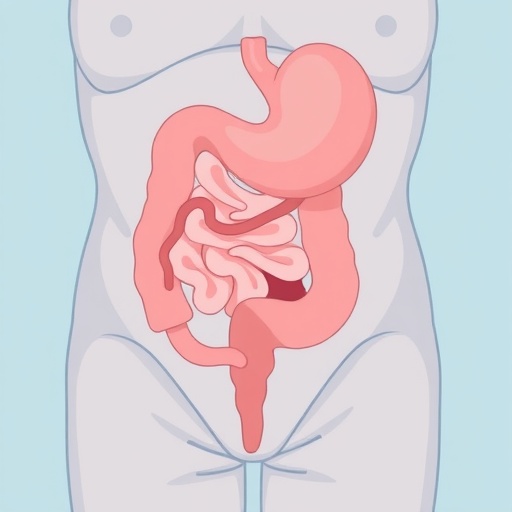A recent meta-analysis published in JAMA Pediatrics has revealed pivotal insights into the comparative outcomes of operative versus nonoperative management of acute conditions affecting the large intestine, specifically targeting the pediatric and adolescent populations. Contrary to prior studies, this comprehensive synthesis of evidence highlights a significantly elevated risk of treatment failure and major complications within one year following nonoperative management in children and adolescents. These findings underscore a pressing need to reexamine clinical decision-making paradigms for this vulnerable demographic.
Historically, nonoperative management has gained popularity as a less invasive option aimed at reducing immediate surgical risks and promoting patient comfort. However, this meta-analysis challenges the adequacy of such an approach by consolidating data from multiple clinical trials and observational studies. By scrutinizing endpoints such as treatment efficacy, complication rates, and long-term outcomes, the analysis provides robust, statistically significant evidence favoring operative intervention in certain pediatric scenarios.
The methodology employed in this meta-analysis adhered rigorously to established guidelines for systematic reviews, employing comprehensive database searches, precise inclusion criteria centered on age groups under 18, and standardized definitions for treatment failure and major complications. Advanced statistical techniques were utilized for pooled effect size estimation, heterogeneity assessment, and sensitivity analyses to ensure the validity and reliability of findings. This methodological rigor offers a high degree of confidence in the conclusions drawn.
In clinical practice, this evolving evidence base mandates that pediatricians and pediatric surgeons engage in nuanced, individualized treatment planning discussions with families. The elevated risks associated with nonoperative pathways demand transparent communication about the potential for subsequent interventions, prolonged morbidity, and the risk-benefit calculus that underpins surgical versus conservative management choices. As such, shared decision-making becomes paramount, respecting patient-specific factors and family preferences.
The implications of this study reverberate beyond immediate clinical choices, prompting reconsideration of current guidelines and protocols in pediatric surgical care. Institutions may need to reconsider conservative management algorithms where the risk profiles illuminated by this meta-analysis reveal unacceptable failure rates. Future clinical guidelines might incorporate these findings to refine patient stratification and risk assessment frameworks.
Moreover, this research calls attention to the unique pathophysiological and biomechanical characteristics of the pediatric gastrointestinal tract. The developmental and immunological distinctions between children and adults suggest that treatment efficacies and tolerances to nonoperative care may differ substantially, warranting age-specific clinical pathways that depart from adult-centered models.
Further investigations will be critical to delineate which subgroups within the pediatric population are most susceptible to adverse outcomes with nonoperative care. Genetic, immunologic, and microbiome profiling could emerge as frontiers for personalized medicine approaches aimed at optimizing treatment responsiveness and minimizing complications. This could also include the development of predictive models integrating clinical and biological markers.
Technological advances, such as minimally invasive surgical techniques and enhanced perioperative care, might also mitigate the risks historically associated with operative management. These innovations could shift the risk-benefit balance further in favor of surgery by reducing recovery times, procedural morbidity, and hospital stays, thus strengthening the argument for surgical intervention as a viable first-line option.
From a healthcare systems perspective, the economic and resource allocation considerations must also be addressed. Treatment failures and complications from nonoperative management can lead to increased hospital readmissions, prolonged care, and escalated costs. In contrast, strategically employed operative management, despite initial resource utilization, may ultimately reduce the burden on pediatric healthcare infrastructure.
This meta-analysis also sheds light on the critical role of family dynamics and the psychological dimensions influencing treatment decisions. Understanding family values, anxieties concerning surgery, and cognitive processing of risks plays a pivotal role in adherence to prescribed treatment pathways. Thus, multidisciplinary approaches involving surgeons, pediatricians, psychologists, and social workers could enhance treatment outcomes through tailored support.
The study was spearheaded by Dr. Isabella Faria, with correspondence available at imdefrei@utmb.edu, reflecting a collaboration among experts dedicated to refining pediatric surgical care through evidence-based medicine. Presented at the prestigious American College of Surgeons Clinical Congress 2025, the findings are poised to influence clinical norms and patient care standards widely.
In summary, this landmark meta-analysis redefines the therapeutic landscape for managing pediatric intestinal conditions by highlighting the superior safety profile and efficacy of operative interventions relative to conservative management within the first year post-treatment. This paradigm shift will likely catalyze further research, guideline revisions, and clinical adaptations that prioritize long-term pediatric health outcomes.
Subject of Research: Pediatric and adolescent management of acute intestinal conditions, focusing on treatment failure and complication rates in operative versus nonoperative approaches.
Article Title: Not provided in the source content.
News Publication Date: Not specified (study presented at American College of Surgeons Clinical Congress 2025).
Web References: Not provided.
References: (doi:10.1001/jamapediatrics.2025.4091)
Image Credits: Not provided.
Keywords: Cecum, Pediatrics, Medical treatments, Adolescents, Children, Decision making, Surgery, Metaanalysis, Acute infections, Family




